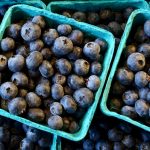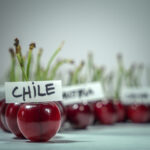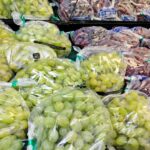Chilean farmers face critical situation as a result of wildfires

Chilean wildfires have been raging through the central-southern region of the country for over a week. With over 300,000 burned hectares and leaving 24 dead, the fire is far from being controlled.
Fruit farmers have been some of the most affected by the uncontrollable expansion of the fire causing the loss of property, lack of drinking water, and roofs.
Fedefruta- the Chilean National Federation of Fruit Producers- said farmers in the producing regions of Ñuble, Biobío, and Araucanía were experiencing a critical situation.
"We set up a land registry to identify the needs by commune and channel the information in the best way to the authorities," said Jorge Valenzuela president of Fedefruta.
The scenario is complex and catastrophic, as it has been reported that producers of cherries for export and lemons for domestic consumption in Quillón, Ñuble region, have lost their crops, while some growers have lost their entire farms.
Blueberry crops in Ñuble have also been affected by the high temperatures, which have reached 111.2ºF (44ºC), causing losses in fresh fruit, as well as damage to warehouses, solar panels, harvesting rooms, water tanks, and fumigation equipment.
Fedefruta reports that some producers have lost more than 440,000 pounds of blueberries for fresh sale.
Valenzuela assured that Fedefruta will support the actions of the authorities and the Ministry of Agriculture, and will carry out a survey of farmers in Ñuble, Biobío, Araucanía, and the affected areas, to assess the productive damage.
"Farmers in the area are attending to the urgent needs of the most complicated people, not even from the productive point of view, which will be seen later with the cadasters," said Valenzuela.
What do farmers in affected areas say?
In Ñuble region, "damage has been quite extensive, especially for small and medium-sized farmers and vine growers, some of whom have lost everything, wineries and wine, even from previous seasons," reported the vice-president of the Ñuble Farmers' Association, Fedefruta advisor and blueberry producer, Álvaro Gatica.
"What we want to know well is a specific assessment of damages so help gets to where people need it and we don't allocate resources randomly," he said.
In Los Angeles, Biobío Region, fruit growers have been carrying out a survey through the Technology Transfer Groups (GTT) for cherry and blueberry trees, said grower Christian Hune.
"There is no damage in blueberry or cherry plantations in the area, but there is damage in the same properties that have forest parts," he commented.
"From the fruit-growing point of view, that is, small and medium-sized producers-exporters, we have not had any damage other than the commotion that has affected the area. However, there are people related to our workers who have reported that houses of small farmers, small plot holders in the outlying communities of Los Angeles, have been burned,” Hune commented.
The councilor and president of Socabío, José Miguel Stegmeier said that, "we have many people who work in the orchards, who live in rural areas, who are seasonal workers and are directly related to the fruit growers, who have suffered a lot of damage with their families. The first measure then should be how to reach those people who work with us and help them.”
Stegmeier added that fires are "permanently appearing again," so it is very complex to have a definitive survey of damages.
The National Agriculture society, along with the ministry of agriculture have suggested "zero activity" in agriculture in the regions of Maule, Ñuble, and Biobío, which are important sources of production for the sector.
Aid for farmers
The Ministry of Agriculture and the Agricultural Development Institute (INDAP) announced that they will provide over US$1.8 million to affected farmers to supply fodder and feed for their animals in the regions declared to be in emergency.
This aid will go to the most affected regions of Ñuble, Biobío, and La Araucanía, as well as partially to Maule and Los Ríos.













































